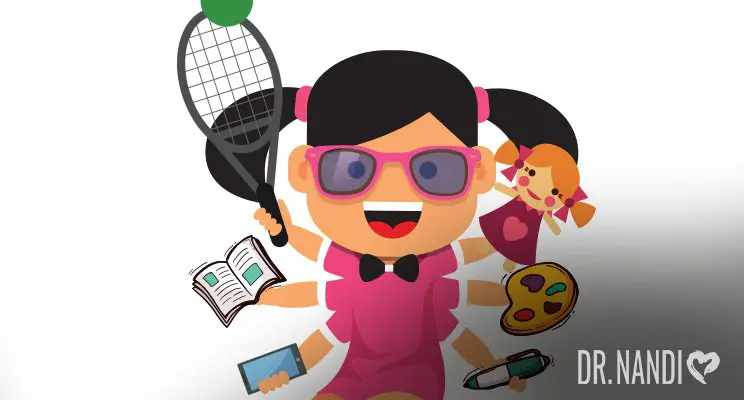Early childhood is a whirlwind of discovery, emotion, and testing boundaries. Whether it’s a toddler throwing food or a preschooler refusing to listen, these behaviors are more than just “phases.” They are opportunities—teachable moments that shape who your child becomes. How you respond in these moments doesn’t just influence their day; it influences their development, their decision-making, and their self-worth for years to come.
You may not see the full impact of your discipline strategies immediately. But what feels like small parenting choices today—like calmly saying “no,” staying consistent, or teaching them to take responsibility—lay the groundwork for how your child will manage emotions, relationships, and adversity as they grow. The truth is, the boundaries you set in early childhood will echo in their teenage behavior, and even in their adult life.
Why Discipline Should Start Early
Between birth and age five, a child’s brain is developing at a remarkable pace. During this window, they begin forming emotional associations, learning impulse control, and developing responses to stress. Waiting until a child is older to begin setting limits can make behavior correction more difficult and lead to power struggles.
Studies show that children who experience consistent, loving discipline from an early age tend to have better emotional self-regulation and fewer behavioral issues later in life. When children understand boundaries early, they gain a stronger sense of security, confidence, and respect for themselves and others.
Appropriate Discipline for Each Stage
The key is to tailor discipline strategies to your child’s age and developmental stage. Here’s a breakdown of what healthy discipline can look like:
1 to 2 Years: Gentle Redirection and Environment Control
- Toddlers this age aren’t capable of understanding consequences the way older children do. The best approach is to limit temptations by childproofing, using redirection, and offering consistent routines.
- Say “no” calmly and redirect attention to a safe and appropriate activity.

2 to 4 Years: Simple Boundaries and Natural Consequences
- At this stage, children begin testing limits. Clear rules and predictable consequences are important.
- Time-outs (1 minute per year of age), loss of privileges, and natural consequences (e.g., not cleaning up toys means no new toys) can be effective.
- Praise and positive reinforcement are key for encouraging good behavior.
5 to 8 Years: Clear Expectations and Responsibility
- Children can now grasp cause and effect. This is a prime time to teach accountability.
- Use charts, rewards for consistency, and involve them in household routines to instill responsibility.
- Avoid over-explaining. Keep rules simple and consequences immediate.
9 and Up: Respectful Dialogue and Logical Consequences
- As children mature, discipline shifts to more of a collaborative approach. Explain the reasons behind rules and allow room for negotiation within boundaries.
- Logical consequences (e.g., breaking a toy means earning money to replace it) promote ownership of behavior.
The Long-Term Impact of Consistent Discipline
Discipline is not about control; it’s about connection and growth. Consistent, age-appropriate discipline supports:
- Emotional Intelligence: Children learn to label emotions, manage frustration, and understand empathy.
- Resilience: Children who grow up with firm but fair boundaries tend to be more adaptable and self-reliant.
- Healthy Relationships: Understanding limits at home prepares children to function respectfully in school, friendships, and later, the workplace.
Research from the American Psychological Association finds that children who receive consistent and loving discipline are less likely to engage in risky behavior during adolescence and have stronger self-regulation skills.

What Happens When Discipline Is Missing?
Children raised without structure or consistent boundaries often struggle with emotional regulation and respect for others. As toddlers, this might show up as tantrums that escalate. In adolescence, it may manifest as defiance, poor impulse control, or an inability to handle consequences. By adulthood, it can evolve into chronic irresponsibility, difficulty maintaining relationships, or a lack of accountability in the workplace.
Lack of discipline doesn’t just affect behavior—it affects identity. When children aren’t taught limits, they may misinterpret freedom as a lack of care. Ironically, setting rules and following through on consequences is one of the most loving things a parent can do. It shows your child that you care enough to guide them, even when it’s hard.
Avoiding Harmful Discipline Practices
It’s vital to separate effective discipline from outdated or harmful methods. Harsh punishment, yelling, or shaming can cause long-term emotional damage and erode trust.
Instead, focus on teaching, guiding, and modeling the behavior you want to see. Your child watches how you handle stress, disappointment, and conflict, and they learn more from what you do than what you say.
Positive Discipline Reminders for Parents
- Be consistent, not rigid.
- Use your calm voice, even when correcting.
- Label and validate your child’s emotions.
- Praise effort, not just results.
- Stay connected: discipline is most effective when children feel loved and secure.
My Personal RX on Healthy Parenting
The daily choices we make, the routines we set, and the values we model all ripple far beyond childhood. A healthy, present, and well-regulated parent has the power to cultivate discipline not through force, but through example—nurturing kids who grow up resilient, self-aware, and capable of creating a better world. Here are smart, intentional steps to build a healthier home that supports the growth of disciplined, happy, and well-adjusted children:
- Prioritize your own gut-brain health. A calm and emotionally regulated parent is a more present parent. Start by strengthening your gut with a daily dose of MindBiotic—a comprehensive gut-brain formula designed to help with stress, focus, and overall mood.
- Create family meals with intention. Eating together isn’t just about nutrition but a chance to connect. Use Mindful Meals, my special gut-brain cookbook, to prepare delicious recipes that support better digestion and emotional wellness for both you and your kids.
- Model consistency. Children learn discipline by watching you follow through. Whether it’s sticking to a bedtime routine or managing screen time, consistency builds trust and structure.
- Teach emotional regulation. Help your children name their feelings, express them appropriately, and develop calming strategies—skills that begin with you practicing them first.
- Get outdoors together. Daily movement in nature lowers stress hormones and boosts serotonin for both adults and kids.
- Limit sugar and ultra-processed foods. These can negatively affect mood, sleep, and focus in children. Build your pantry with real, gut-friendly ingredients.
- Encourage responsibility early. Age-appropriate chores and tasks teach children accountability, routine, and delayed gratification.
- Practice patience, not perfection. A healthy parent isn’t a flawless one. Show your kids how to apologize, adapt, and grow.
- Protect sleep time for everyone. A well-rested parent is more resilient, and a well-rested child behaves and learns better. Make sleep hygiene part of your family’s wellness plan.
- Celebrate progress, not just outcomes. Reinforce effort, kindness, and improvement, not just grades or achievements. This nurtures self-worth and internal motivation.
Sources:
- Colman, R. A., Hardy, S. A., Albert, M., Raffaelli, M., & Crockett, L. (2006). Early predictors of self-regulation in middle childhood. Infant and Child Development, 15(4), 421–437. https://doi.org/10.1002/icd.469
- Wang, Y., Wang, M., & Xing, X. (2018). Parental harsh discipline and child emotion regulation: The moderating role of parental warmth in China. Children and Youth Services Review, 93, 283–290. https://doi.org/10.1016/j.childyouth.2018.07.035
- American Psychological Association. (2019). Impact of Physical Discipline on Children May Be Harmful in the Long Term, According to APA Resolution [Press release]. https://www.apa.org/news/press/releases/2019/02/physical-discipline
- Sege, R. D., Siegel, B. S., Flaherty, E. G., Gavril, A. R., Idzerda, S. M., Laskey, A. “., Legano, L. A., Leventhal, J. M., Lukefahr, J. L., Yogman, M. W., Baum, R., Gambon, T. B., Lavin, A., Mattson, G., Montiel-Esparza, R., & Wissow, L. S. (2018). Effective discipline to raise healthy children. PEDIATRICS, 142(6). https://doi.org/10.1542/peds.2018-3112











 Subscribe to Ask Dr. Nandi YouTube Channel
Subscribe to Ask Dr. Nandi YouTube Channel









